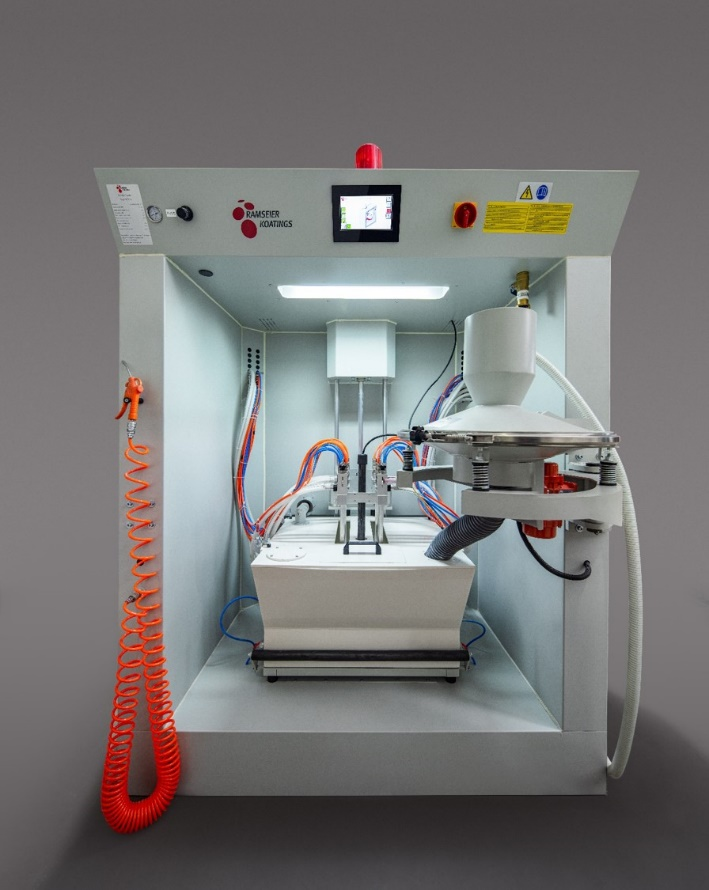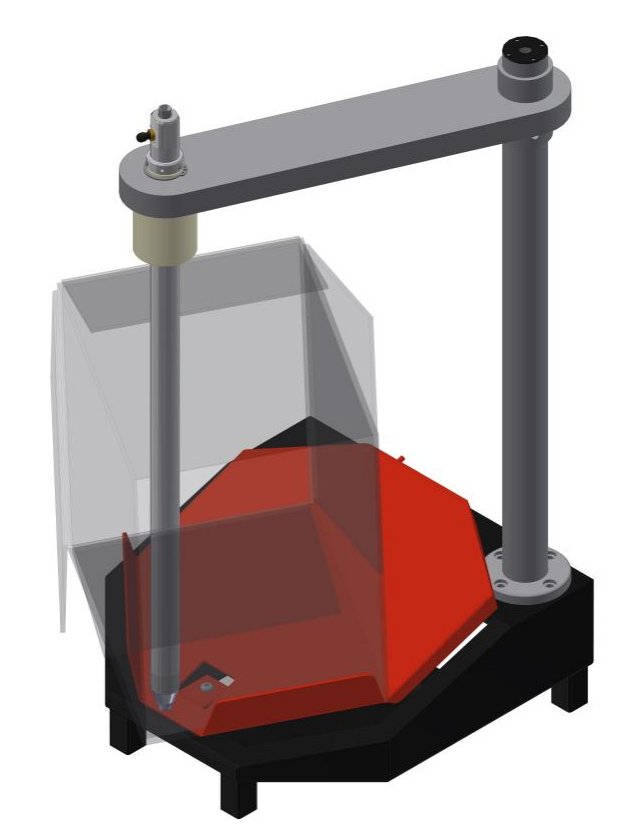Content Menu
● Understanding Powder Supply Systems
● Understanding Mechanical Systems
● Factors Affecting Reliability
>> Design and Complexity
>> Component Quality
>> Operating Environment
>> Maintenance
>> Control Systems
● Comparing Reliability
● Improving Reliability
>> Powder Supply Systems
>> Mechanical Systems
● Conclusion
● Related Questions and Answers
● Citations:
The reliability of a system, whether it's a powder supply system or a mechanical system, is a critical factor in determining its suitability for a particular application. Reliability refers to the probability that a system will perform its intended function for a specified period under given conditions[3]. In comparing powder supply systems and mechanical systems, it's essential to consider the factors that influence their reliability, such as design, components, operating environment, and maintenance practices[3]. This article will explore these aspects to determine whether powder supply systems are inherently more reliable than mechanical systems.

Understanding Powder Supply Systems
Powder supply systems are designed to store, transport, and dispense powdered materials with precision and consistency. These systems are used in various industries, including pharmaceuticals, food processing, chemical manufacturing, and additive manufacturing. A typical powder supply system consists of several key components:
* Storage Container: Holds the bulk powder material.
* Feeding Mechanism: Controls the flow of powder from the container.
* Transport System: Moves the powder to the point of use, which can be gravity, augers, pneumatic conveying, or vibratory feeders.
* Dosing Unit: Measures and dispenses the powder accurately.
* Control System: Regulates the operation of the entire system.
The reliability of a powder supply system depends on the proper functioning of each of these components. Factors such as powder properties (flowability, cohesiveness, abrasiveness), environmental conditions (humidity, temperature), and system design (material selection, sealing, cleaning) can significantly impact performance.
Understanding Mechanical Systems
Mechanical systems encompass a wide range of devices and machines that use mechanical components to perform tasks. These systems are ubiquitous in manufacturing, transportation, energy production, and many other fields. Examples of mechanical systems include engines, gearboxes, pumps, conveyors, and robotic arms. A mechanical system typically consists of:
* Structural Components: Frames, housings, and supports that provide rigidity and alignment.
* Moving Parts: Gears, shafts, bearings, and linkages that transmit motion and force.
* Actuators: Motors, cylinders, and valves that provide the power to drive the system.
* Control System: Regulates the operation of the system, which can be as simple as a mechanical governor or as complex as a computer-controlled system.
The reliability of a mechanical system depends on the durability and performance of its components, as well as the effectiveness of lubrication, cooling, and vibration damping. Factors such as wear, fatigue, corrosion, and overloading can lead to failures and reduce system reliability.
Factors Affecting Reliability
Design and Complexity
* Powder Supply Systems: These can range from simple gravity-fed hoppers to complex automated systems with sophisticated controls. The complexity of the system directly affects its reliability. Simpler designs with fewer moving parts tend to be more reliable than complex ones. However, even simple systems can be unreliable if not designed correctly for the specific powder being handled.
* Mechanical Systems: These vary greatly in complexity, from simple levers and linkages to intricate machines with hundreds of components. Generally, mechanical systems are more complex than powder supply systems because they involve more moving parts and interactions. The more complex a mechanical system is, the more opportunities there are for failures to occur.
Component Quality
* Powder Supply Systems: The components used in powder supply systems, such as feeders, valves, and sensors, must be of high quality to ensure reliable operation. The materials used must be compatible with the powder being handled to prevent corrosion, abrasion, and contamination.
* Mechanical Systems: The reliability of mechanical systems is highly dependent on the quality of their components, such as gears, bearings, and motors. Using high-quality materials and precision manufacturing processes can significantly improve the reliability of these components.
Operating Environment
* Powder Supply Systems: The operating environment can significantly impact the reliability of powder supply systems. Humidity, temperature, and dust levels can affect the flowability of powders and the performance of system components. Proper environmental controls, such as dehumidification and dust collection, are essential for maintaining reliability.
* Mechanical Systems: Environmental factors such as temperature, humidity, and vibration can also affect the reliability of mechanical systems[2]. Extreme temperatures can cause materials to expand or contract, leading to misalignment and increased wear. High humidity can promote corrosion, while vibration can cause fatigue failures.
Maintenance
* Powder Supply Systems: Regular maintenance is crucial for ensuring the reliability of powder supply systems. This includes cleaning, inspection, and replacement of worn parts. Preventive maintenance programs can help identify and address potential problems before they lead to failures.
* Mechanical Systems: Mechanical systems require regular maintenance to ensure reliable operation. This includes lubrication, adjustment, and replacement of worn parts. Predictive maintenance techniques, such as vibration analysis and oil analysis, can help detect potential problems early and prevent costly breakdowns.
Control Systems
* Powder Supply Systems: Modern powder supply systems often incorporate sophisticated control systems that monitor and regulate system performance. These systems can provide real-time feedback on powder flow rates, material levels, and system status, allowing for proactive adjustments and minimizing downtime.
* Mechanical Systems: Control systems in mechanical systems range from simple mechanical governors to advanced electronic controllers. These systems regulate speed, position, force, and other parameters to ensure proper operation. The reliability of the control system is critical to the overall reliability of the mechanical system.
Comparing Reliability
It is challenging to definitively state that powder supply systems are inherently more reliable than mechanical systems or vice versa. The reliability of each system depends heavily on the specific application, design, and operating conditions. However, some general observations can be made:
* Simplicity: Simpler systems, whether powder supply or mechanical, tend to be more reliable. Powder supply systems can be simpler than mechanical systems in certain applications, potentially leading to higher reliability.
* Environmental Sensitivity: Powder supply systems are often more sensitive to environmental factors such as humidity and temperature than mechanical systems. This can make them less reliable in certain environments unless proper controls are in place.
* Wear and Tear: Mechanical systems are generally subject to more wear and tear than powder supply systems due to the presence of moving parts in contact with each other. This can lead to a higher frequency of maintenance and repairs.
* Component Failure: Both types of systems are susceptible to component failures, but the specific components that are most likely to fail differ. In powder supply systems, feeders, valves, and sensors are common failure points. In mechanical systems, gears, bearings, and motors are more likely to fail.
* Redundancy: Implementing redundancy can significantly improve the reliability of both powder supply and mechanical systems[3]. Redundant components or systems can take over in the event of a failure, ensuring continued operation.
Improving Reliability
Powder Supply Systems
* Proper Material Selection: Choosing materials that are compatible with the powder being handled is crucial for preventing corrosion, abrasion, and contamination.
* Sealing and Dust Control: Effective sealing and dust control measures can prevent powder leakage and contamination, improving system reliability and safety.
* Regular Cleaning: Regular cleaning of the system can prevent powder buildup and blockages, ensuring consistent flow and accurate dosing.
* Environmental Controls: Maintaining proper temperature and humidity levels can prevent powder caking and clumping, improving flowability and system performance.
Mechanical Systems
* Lubrication: Proper lubrication is essential for reducing friction and wear in mechanical systems. Regular lubrication schedules and the use of appropriate lubricants can significantly extend the life of system components.
* Vibration Damping: Vibration can cause fatigue failures and reduce the reliability of mechanical systems. Vibration damping measures, such as isolators and dampers, can help minimize these effects.
* Cooling: Overheating can damage mechanical components and reduce their lifespan. Effective cooling systems, such as fans, heat exchangers, and liquid cooling, can help maintain optimal operating temperatures.
* Preventive Maintenance: Implementing a comprehensive preventive maintenance program can help identify and address potential problems before they lead to failures. This includes regular inspection, adjustment, and replacement of worn parts.
Conclusion
Determining whether powder supply systems are more reliable than mechanical systems is not straightforward. Both types of systems have their strengths and weaknesses, and their reliability depends on various factors. Powder supply systems can be simpler and less prone to wear and tear in certain applications, but they are often more sensitive to environmental conditions. Mechanical systems are generally more complex and subject to more wear and tear, but they can be more robust in harsh environments.
Ultimately, the most reliable system is the one that is best designed, built, and maintained for the specific application. By carefully considering the factors discussed in this article and implementing appropriate measures to improve reliability, it is possible to achieve high levels of performance and uptime with both powder supply and mechanical systems.
Related Questions and Answers
1. What is the most common cause of failure in powder supply systems?
*Answer:* The most common causes of failure in powder supply systems include powder caking and clumping due to humidity, component wear, and blockages due to powder buildup.
2. How does temperature affect the reliability of mechanical systems?
*Answer:* Temperature affects the reliability of mechanical systems by causing materials to expand or contract, leading to misalignment and increased wear. Extreme temperatures can also degrade lubricants and cause components to fail prematurely[2].
3. What is the role of preventive maintenance in ensuring system reliability?
*Answer:* Preventive maintenance involves regular inspection, adjustment, and replacement of worn parts to identify and address potential problems before they lead to failures. This helps to maintain optimal system performance and minimize downtime.
4. How can redundancy improve the reliability of a system?
*Answer:* Redundancy involves incorporating backup components or systems that can take over in the event of a failure, ensuring continued operation. This significantly reduces the risk of downtime and improves overall system reliability[3].
5. What are some key considerations when selecting materials for powder supply systems?
*Answer:* Key considerations when selecting materials for powder supply systems include compatibility with the powder being handled, resistance to corrosion and abrasion, and ability to withstand the operating environment.

Citations:
[1] https://en.wikipedia.org/wiki/Power_system_reliability
[2] https://www.actpower.com/blog/factors-that-affect-power-supply-reliability/
[3] https://www.belfuse.com/resource-library/tech-paper/reliability-considerations-for-power-supplies
[4] https://www.ferc.gov/reliability-explainer
[5] https://pdhonline.com/courses/e485/e485content.pdf
[6] https://juejin.cn/post/7389200711404716082
[7] https://www.wiley.com/Power+Distribution+System+Reliability:+Practical+Methods+and+Applications-p-x000446341
[8] https://www.cnblogs.com/luohenyueji/p/16990846.html
[9] https://blog.csdn.net/weixin_41171614/article/details/138951928
---
Hot Tags: China, Global, OEM, private label, manufacturers, factory, suppliers, manufacturing company










































 .
. 